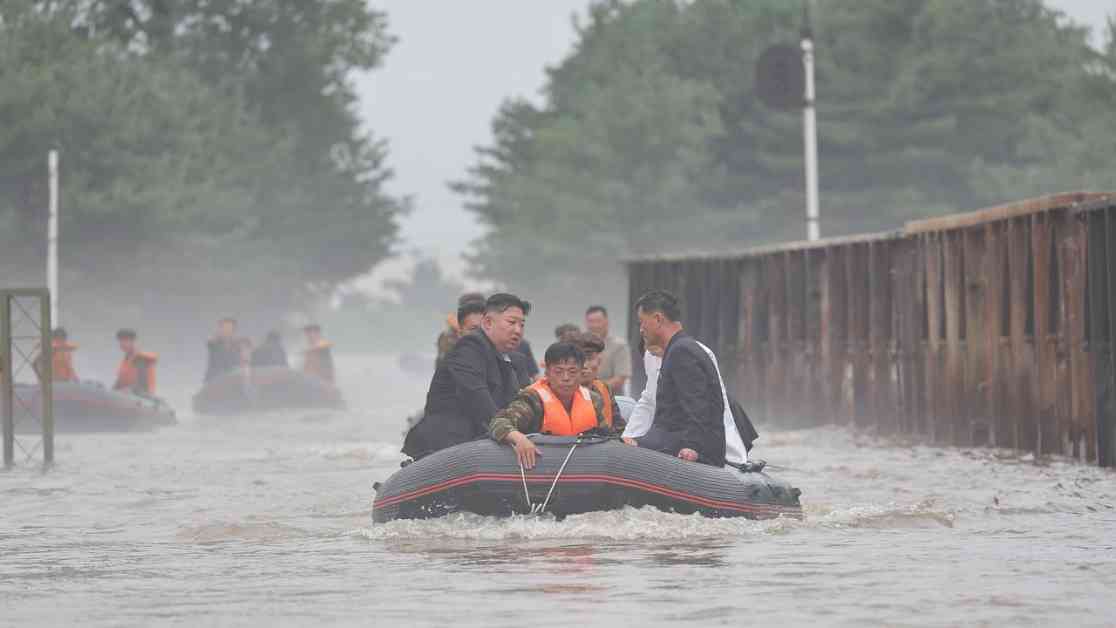Severe flooding in North Korea has caused devastation and left many dead and missing. The heavy rains have been ongoing for weeks, leading to massive flooding in parts of the country near the border with China. The isolated nation saw record-breaking rainfall at the end of July, resulting in over 4,000 households being affected and nearly 3,000 hectares of farmland being damaged.
While the exact extent of the damage is still unknown, South Korea estimates that over 1,500 people have either died or gone missing due to the floods. In response to these numbers, North Korean leader Kim Jong Un has dismissed them as provocative and insulting, claiming that no one has died in the floods. However, reports from South Korea suggest otherwise.
Kim has visited the flood-affected areas and announced plans to relocate around 15,400 victims to the capital, Pyongyang, until their homes can be rebuilt. This relocation effort includes providing food, medical aid, and educational support for students. Kim has emphasized that the government’s top priority is to assist those affected by the flooding and help them recover.
Despite offers of assistance from abroad, Kim has insisted that North Korea will rely on its own resources for rebuilding efforts and has declined any foreign aid. South Korea, as well as other allies, have expressed willingness to provide humanitarian assistance, but North Korea has not responded to these offers. Russian President Vladimir Putin, a long-time ally of North Korea, offered immediate aid for reconstruction efforts, but Kim politely refused, stating that he would reach out for help if needed in the future.
Kim has acknowledged failures in disaster preparedness and has ordered strict punishments for those responsible for neglecting their duties. He has appointed a new Minister for Public Security and a new party leadership for the province of North Pyongan, which was severely affected by the floods.
The situation in North Korea remains dire, with thousands displaced and in need of assistance. The rejection of foreign aid raises concerns about the country’s ability to recover effectively from this natural disaster. As the region continues to grapple with the aftermath of the flooding, international cooperation and support may be crucial in helping North Korea rebuild and recover from this devastating event.












